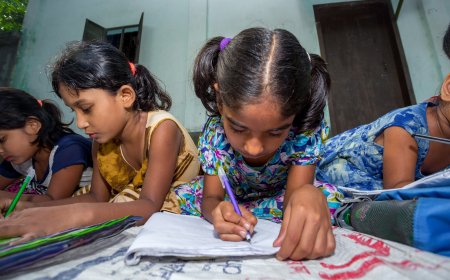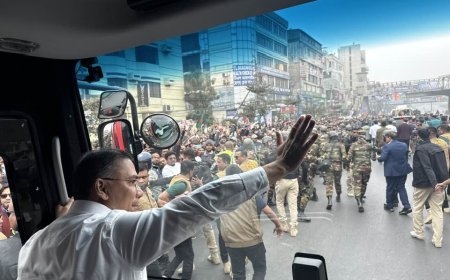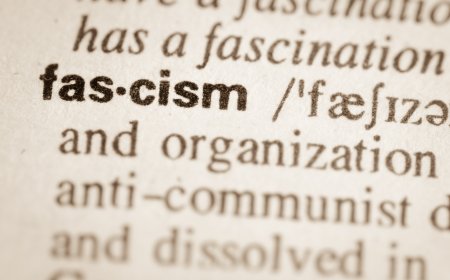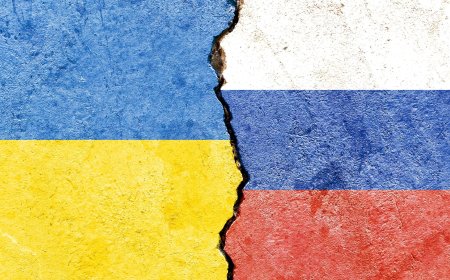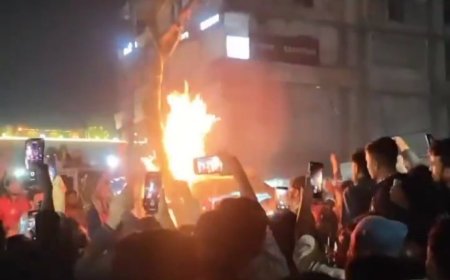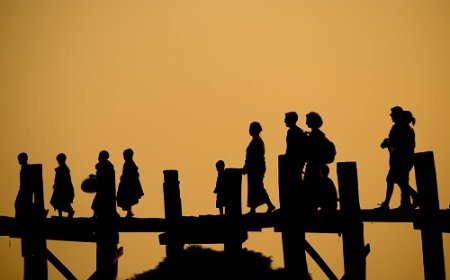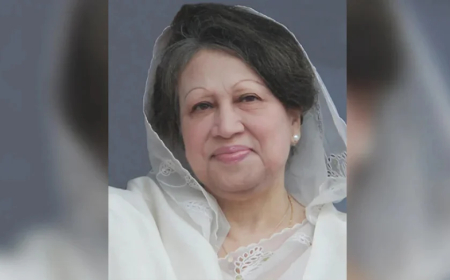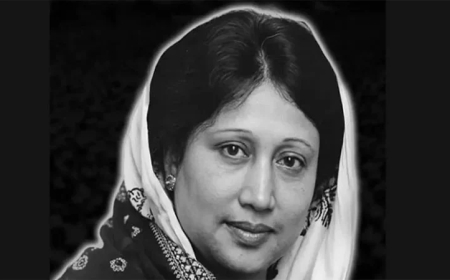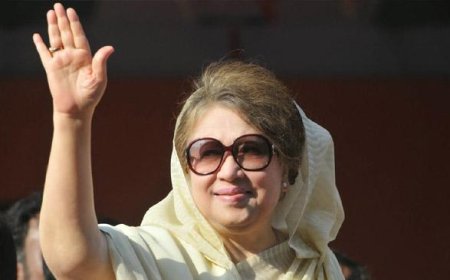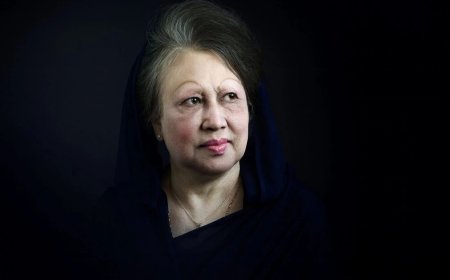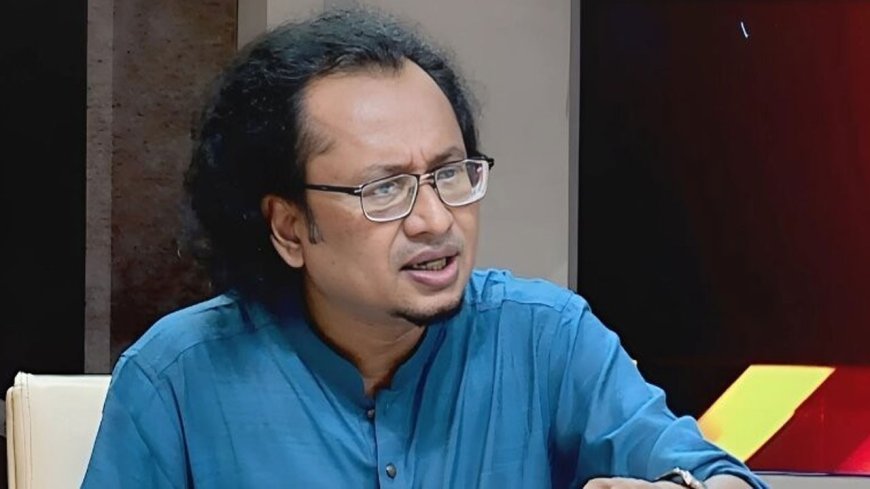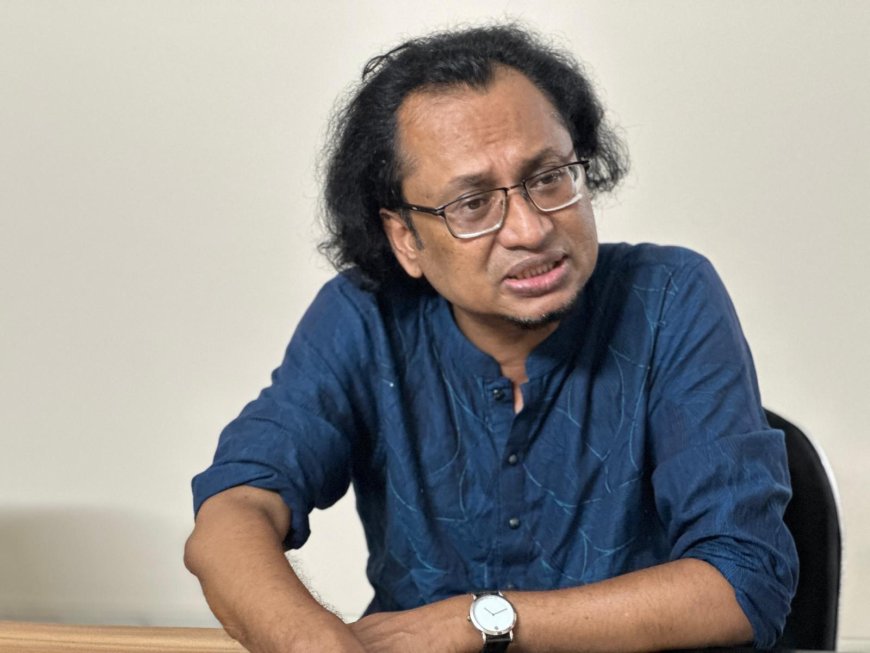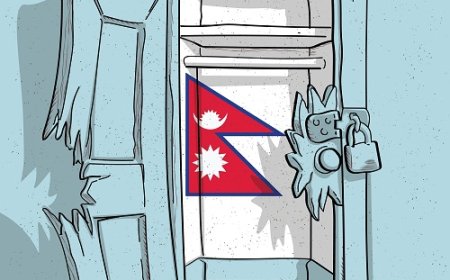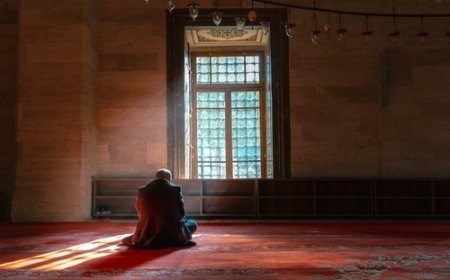A Matter of Life and Death
Democracy depends on two simple protections: that people can speak, and that they will not be killed for speaking. In Bangladesh, labeling someone a nastik is painting a target on his back, and should be seen for the incitement to violence that it is.
The moment a public figure in Bangladesh is labeled nastik -- an atheist -- the label is rarely a description. It is a verdict. In a country where faith is woven into daily life and political identity, the accusation of apostasy is a blunt instrument: it strips a person of social protection, paints them as an enemy of the community, and in the worst cases, marks them for violence.
The recent episode in which Dr. Zahedur Rahman, a member of the Electoral System Reform Commission, was called nastik on national television, and the frightening threats his wife, Aana Nasrin, reports receiving, are not isolated outrages. They sit on a painful historical arc: a catalogue of stalking, threats and machete attacks aimed at writers, publishers and activists whose views or associations made them convenient targets. Those events are not some distant memory; they are a lesson in how words can become instruments of erasure.
When an accusation of apostasy is broadcast from a pulpit, a talk show or a political platform, it performs two functions at once. It dehumanizes the target for a broad audience, and it signals permission -- tacit or explicit -- to those who would carry out the dirty work.
In Bangladesh’s recent past, namings have precipitated killings. Bloggers and publishers who were labeled enemies of religion were hunted and hacked to death; publishers were murdered inside their offices; others were forced into exile.
The pattern is chillingly predictable: naming, followed by stalking, followed by attack.
International groups and newspapers documented the pattern during the wave of attacks that began in 2013 and peaked through the mid-2010s. The scale and brutality of those attacks exposed a shared truth: denunciation can be a precursor to violence.
That is why the present matter is not merely about insult or reputation. It is a question of life and death. Dr. Zahedur’s wife says that since late June 2025 she has been receiving messages from an unknown account that included threats and conspiratorial claims, culminating in an explicit plan disclosed to her -- the sort of messages that have preceded violence elsewhere.
She has posted screenshots, preserved time-stamped entries and taken the precaution of sharing the material with her lawyer. Her anguish -- the hospitalizations in her family, the fear of a fabricated mental-health narrative used to discredit her, the pressure to avoid filing a general diary -- reads like the procedural foreplay of degradation: first reputational ruin, then legal neutralization, then physical danger. Whether the threat is immediate or an instrument of intimidation, the tactic is identical to those that have silenced dissent before.
We must name another layer to this cruelty: the political economy of accusation. In a polarized country where the majority religion is both central to identity and politically freighted, powerful actors can -- intentionally or not -- weaponize faith. When the interim government’s gestures toward influential religious constituencies are read as patronage, that patronage shapes incentives. Political actors, fearful of alienating conservative blocs or eager to curry favor, may dampen protections for dissenters.
The result is a double jeopardy: minorities of conscience are vulnerable not only to non-state extremists but also to state inaction or opportunistic politics that tacitly reward the loudest religious voices.
Whether one accepts the allegation that the interim government led by Professor Yunus is actively patronizing hard-line groups, the appearance of such favoritism is itself corrosive: it lowers the cost of intimidation and raises the social acceptability of excluding dissenters.
In this atmosphere, being labeled nastik is both a social death sentence and a provocation. That political dynamic -- the interplay of partisan calculation and religious majoritarianism -- was visible in earlier waves of violence against freethinkers and secular writers in the last decade.
There is also a moral hypocrisy at play when members of the religious majority -- or those who claim moral authority within it -- weaponize confession. Barrister Shahriar Kabir, a respected figure to many, is among those whose moral standing gives weight to public denunciations. When such prominence is used as leverage to delegitimize others, it compounds the danger.
It is one thing to argue in the public square over ideas; it is quite another to enlist religious sentiment, rumor and innuendo in order to neutralize a political rival, a critic or an inconvenient expert.
In contexts where mobs have previously taken the law into their own hands, the effects can be lethal. To use faith as currency to strip someone of protections is not righteous zeal; it is a raw exercise of political power that counts on fear to do the heavy lifting.
The consequences of this dynamic are both personal and political. For the individual -- in this case Dr. Zahedur and his family -- the consequences are immediate: fear for safety, the erosion of normal civic protections, and the prospect that ordinary civic remedies (police reports, legal filings) will be complicated by politics, rumor and social stigma.
For society, the costs are deeper: a throttling of open debate; a narrowing of the sphere of what can be said by academics, journalists, and reformers; and the weakening of institutions charged with protecting citizens irrespective of creed.
Democracy depends on two simple protections: that people can speak, and that they will not be killed for speaking. Bangladesh has a proud history of intellectual pluralism -- the liberation struggle itself was rooted in a vision of equality and secular civic life. That inheritance is imperiled when the machinery of accusation is allowed to function as a death sentence.
The state’s first duty is to protect life; its second is to ensure that politics do not make certain lives cheaper.
The evidence from past years is plain: when governments apologize to or placate Islamist hard-liners, or when political actors avow the need to avoid “offending” religious sentiment at all costs, the incentive structure shifts toward silence and away from protection.
So what should responsible citizens and institutions do?
First, public figures must be held accountable for rhetoric that endangers others. A call-out is not the same as a threat; but when the line between denunciation and delegitimization is blurred in a context where violent actors roam, that rhetoric must be treated with gravity.
Regulatory bodies, broadcasters and civil-society organizations must adopt standards that prevent public personalities from making accusations that amount to incitement.
Second, law-enforcement must treat threats as threats. When a credible threat is reported -- when a spouse posts screenshots of messages describing a plan of violence -- there should be a swift, transparent response: protection, investigation, and, where merited, prosecution.
Third, political leaders from across the spectrum must reaffirm the simple principle that no one should be targeted for their beliefs or for suspected disbelief. Political expediency cannot be a cover for endangering lives.
Finally, citizens must remember what is at stake. Tolerant majorities do not become tolerant by accident; civility is a practice. Labeling someone nastik -- and encouraging others to view that as a stain rather than a private belief -- is not debate. It is a call to exile. If Bangladesh is to remain a place where dissenting voices can speak, publish and argue without fear of being hunted, then the protections of conscience must be restored and made real.
There are no easy fixes to long-running cycles of violence and intimidation. But the calculus is simple: if public life is permitted to sanction social death, physical death is not far behind.
The case of Dr. Zahedur Rahman should not be reduced to gossip about private life or political rivalry; it should be a test of whether a nation values the safety of its citizens more than the clout of a few. To survive as a plural, free society, Bangladesh must reject the politics of accusation and defend not just speech, but the people who exercise it.
Otherwise, the power of coloring someone nastik will have done its most devastating work -- erasing a person’s right to belong in public life, and perhaps, in time, erasing the person themselves.
Omar Shehab is a theoretical quantum computer scientist at the IBM T. J. Watson Research Center, New York. His work has been supported by several agencies including the Department of Defense, Department of Energy, and NASA in the United States. He also regularly invests in the area of AI, deep tech, hard tech, and national security.
What's Your Reaction?









